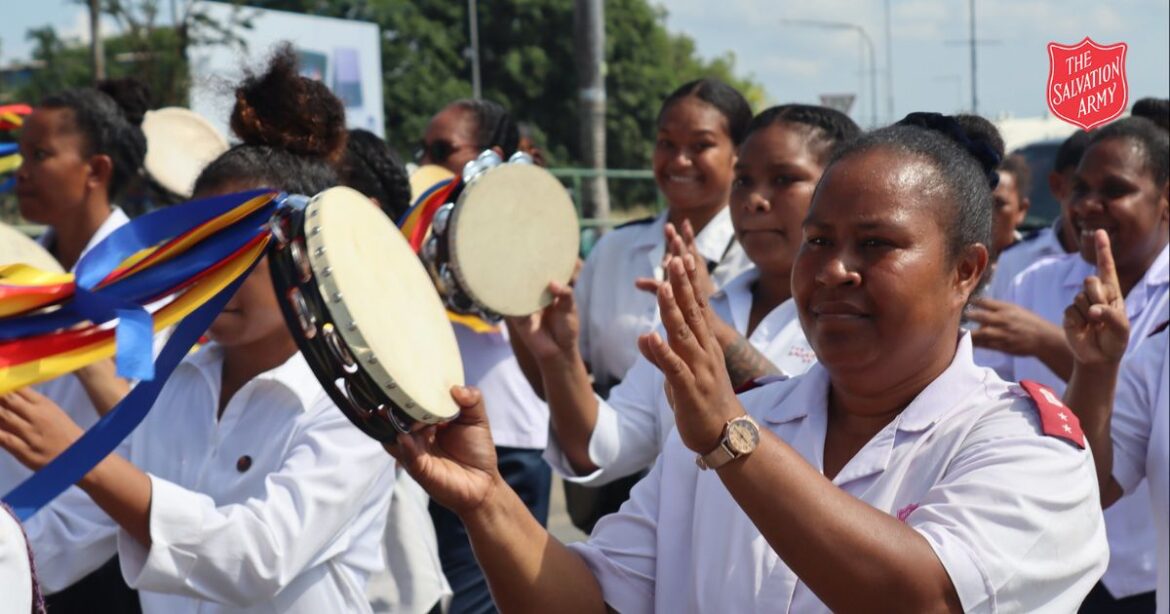What does it truly mean to incorporate faith into actionable service, especially within the context of the Salvation Army? This emblematic organization has, over the decades, become synonymous with charitable acts, yet a deeper understanding reveals a rich tapestry of spiritual and practical endeavors. Through an examination of its multifaceted service mission, we begin to uncover the profound implications of faith in action, inviting believers to reflect critically on their own engagement with the tenets of their faith.
At the heart of the Salvation Army’s mission lies an unwavering commitment to serve humanity. Founded in 1865 by William and Catherine Booth, this Christian denomination operates on the belief that salvation is attainable through faith in Jesus Christ, which must invariably translate into compassionate service. Grounded in the core tenets of Christianity, the organization seeks not only to meet the immediate material needs of individuals but to address the underlying spiritual dimensions as well. It’s a curious juxtaposition: How can a faith-based organization genuinely address physical needs while also nurturing the soul’s yearning for deeper understanding and connection with God?
To appreciate the breadth of the Salvation Army’s initiatives, one must first delve into its most recognized efforts—those aimed at combating poverty and providing relief in times of crisis. From food pantries offering sustenance to families in distress to shelters providing refuge for the homeless, the Army’s tangible support is a poignant manifestation of faith in action. Each meal served or bed provided is undergirded by the principle that every individual, regardless of circumstance, is worthy of dignity and respect.
Yet, the Salvation Army’s work transcends mere charity; it fosters empowerment and rehabilitation through programs designed to restore hope. Consider the rehabilitation programs for individuals struggling with addictions or the initiatives aimed at at-risk youth. These endeavors not only mitigate immediate crises but also facilitate holistic recovery—a testament to the belief that faith must lead to transformative change. How often do we encounter moments of divine grace in the midst of our struggles? This is precisely what the Salvation Army strives to embody.
In times of catastrophe, the organization is frequently unearthed at the forefront of disaster relief efforts. When hurricanes devastate communities or wildfires rage uncontrollably, the Salvation Army mobilizes to deliver essential aid. Their dedicated volunteers and staff work tirelessly to provide food, shelter, and moral support to those affected. This responsiveness illuminates the critical relationship between faith and service. The question persists: How does one’s faith compel them to act when faced with the suffering of others?
Moreover, the Salvation Army recognizes the significance of long-term support. Their extensive social programs facilitate education, job training, and mental health counseling, effectively acting as a bridge toward sustainable solutions. This holistic approach encapsulates the idea that faith is not merely a passive belief system but an active commitment to justice and mercy. Bridging this gap between faith and community welfare not only aligns with biblical teachings but also propels the faithful into a realm of active discipleship.
The organization also emphasizes spiritual development as an indispensable aspect of its efforts. Through worship services, outreach programs, and discipleship training, the Salvation Army nurtures the spiritual lives of its constituents, highlighting the interconnection between faith and practical acts of kindness. The deployment of prayer alongside physical aid serves as a reminder that faith undergirds meaningful action, fostering a deeper relationship with God and with others.
Furthermore, the Salvation Army advocates for social justice, addressing systemic issues that perpetuate poverty and inequality. Their advocacy initiatives are rooted in the conviction that Christians are called to challenge societal injustices. This desire for a fairer society compels individuals of faith to not only contribute to charitable actions but to also engage in advocacy and reform. Are we as believers sufficiently equipped to confront these challenges within our communities?
It’s crucial to recognize that the action taken by the Salvation Army is not merely an expression of charity but a profound illustration of love in practice. Through their outreach efforts and community engagement, they exemplify the biblical principle that faith is not complete without works. Each interaction, each gesture of kindness, serves as a reflection of Christ’s love, manifesting the transformative power of faith when coupled with action.
The essence of the Salvation Army’s mission is beautifully encapsulated in its motto: “Heart to God, Hand to Man.” This phrase resonates deeply as it captures the interdependence between nurturing one’s faith and engaging actively with the world. The challenge emerges: Are we willing to extend our hands in service to those in need, recognizing it as an extension of our spiritual commitment?
As one reflects upon the myriad of services provided by the Salvation Army, it becomes abundantly clear that faith in action is a dynamic process that requires continual engagement. The invitation is clear—every believer is called to examine how their faith can concretely manifest in acts of kindness and community service. In this, we find a shared responsibility as stewards of God’s love. Engaging with those who suffer, standing in solidarity with the marginalized, and advocating for justice are not merely optional; they are intrinsic to the Christian calling.
In summary, the Salvation Army embodies what it means to live out a faith that is vibrant and active, intertwining spiritual and physical sustenance into a single, cohesive mission. This compelling blend invites all individuals of faith to consider how they might contribute to this vital dialogue of action and belief. What’s the challenge you face in embarking on your journey of faith in action? Are you prepared to join the ranks of those committed to such a noble cause?



